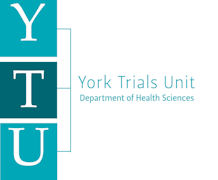CCBT - Computerised Cognitive Behavioural Therapy for adolecents: a feasibility study and pilot RCT
We compared a Computerised Cognitive Behavioural Therapy (CCBT) program (Stressbusters) with an attention control (self-help websites) for adolescent depression at referral to evaluate the clinical and cost-effectiveness of CCBT. We found that CCBT and self-help websites may both have a place in the care pathway for adolescents with depression.
Why did we do this research?
Little was known about the value of implementing CCBT within the NHS for adolescents with low mood/depression. The software StressBusters, a computerised Cognitive Behaviour package based around eight 30 to 45 minute sessions designed specifically for 12 -18-year-olds was a potential intervention, but a trial was needed to establish if it was effective.
What did we do?
We carried out an initial feasibility study followed by a pilot RCT study to examined the clinical and cost-effectiveness of Stressbusters compared to an attention control (self-help websites). The main outcome was depression severity measured using the Short Beck Depression Inventory to collect data at baseline, then 4 and 12 months after completion of the intervention.
Who was involved?
Our target population was 12-18-year-olds with low mood/depression living within the areas covered by a CAMHS service in a Northern City in England. One hundred and thirty-nine young people consented and were randomised.
What did we find?
Overall scores on outcome measures were not significantly different between the intervention and attention control groups at 12 months, however, both showed improvements on all measures. This may be because many young people improve as time progresses or because the website intervention yielded benefits to the young people that were just as helpful as CCBT.
What have we learned?
The numerous challenges faced and present throughout all stages of the trial including its setup, recruitment period and delivery, have been reported to assist the planning of future such research.
Publications
- Wright, B., Tindall, L., Hargate, R., Allgar, V., Trépel, D., & Ali, S. (2020). Computerised cognitive–behavioural therapy for depression in adolescents: 12-month outcomes of a UK randomised controlled trial pilot study. BJPsych Open, 6(1) doi:https://doi.org/10.1192/bjo.2019.91
- Tindall, L., Varley, D. and Wright, B. (2016), "A feasibility and pilot trial of computerised cognitive behaviour therapy for depression in adolescents: lessons learned from planning and conducting a randomised controlled trial", Mental Health Review Journal, Vol. 21 No. 3, pp. 193-199. https://doi.org/10.1108/MHRJ-11-2015-0032
- Wright B, Tindall L, Littlewood E, et alComputerised cognitive–behavioural therapy for depression in adolescents: feasibility results and 4-month outcomes of a UK randomised controlled trial. BMJ Open 2017;7:e012834. https://doi.org/10.1136/bmjopen-2016-012834
- Wright B, Tindall L, Littlewood E, et al Computerised cognitive behaviour therapy for depression in adolescents: study protocol for a feasibility randomised controlled trial. BMJ Open 2014;4:e006488. doi: 10.1136/bmjopen-2014-006488
Team
- Elizabeth Littlewood
- Joy Adamson
- Victoria Allgar
- Simon Gilbody
- Lisa Dyson
- Dominic Trépel
- Shehzad Ali
Department of Health Sciences, University of York, York, UK
- Barry Wright
- Lucy Tindall
- Sophie Bennett
- Ben Alderson-Day
Limetrees Child, Adolescent and Family Unit, York
Funding
The research was funded by the NIHR Research for Patient Benefit (RfPB) programme (Award ID: PB-PG-0609-19295). The project was started in June 2011 and completed in August 2016.
Study Registration
Trial registration: ISRCTN31219579.


